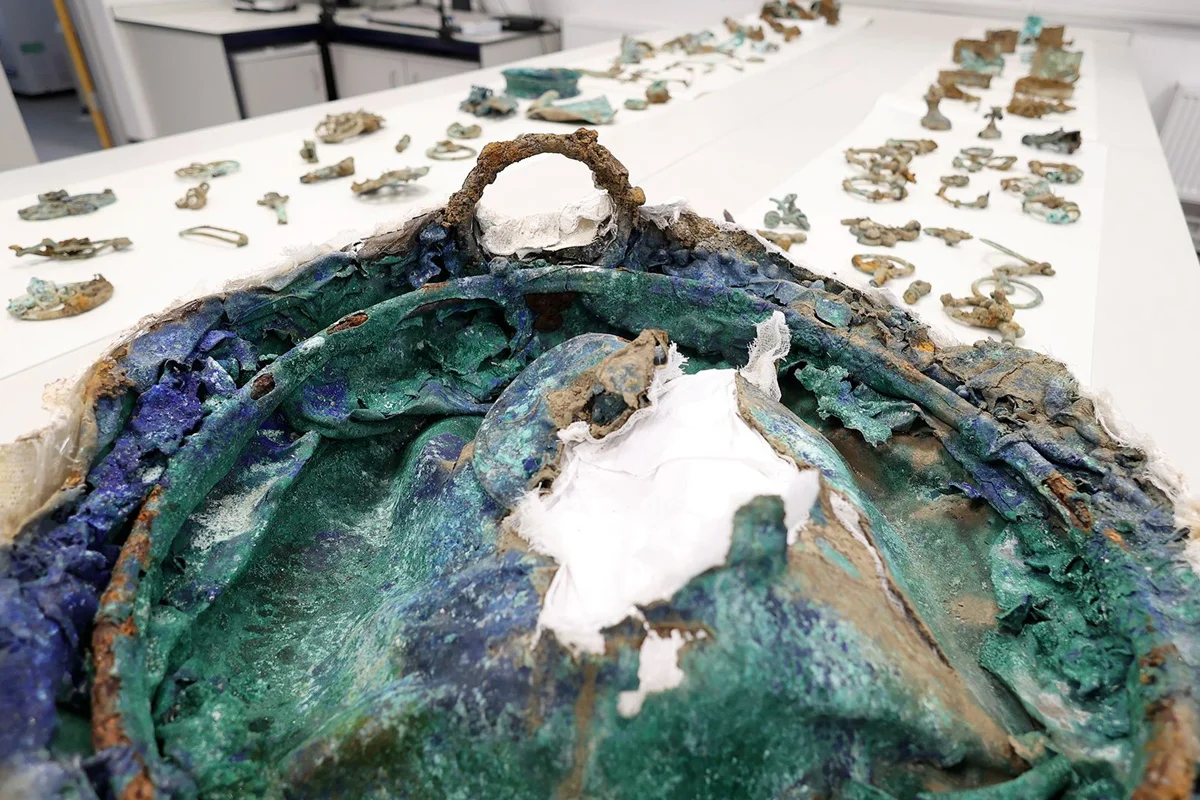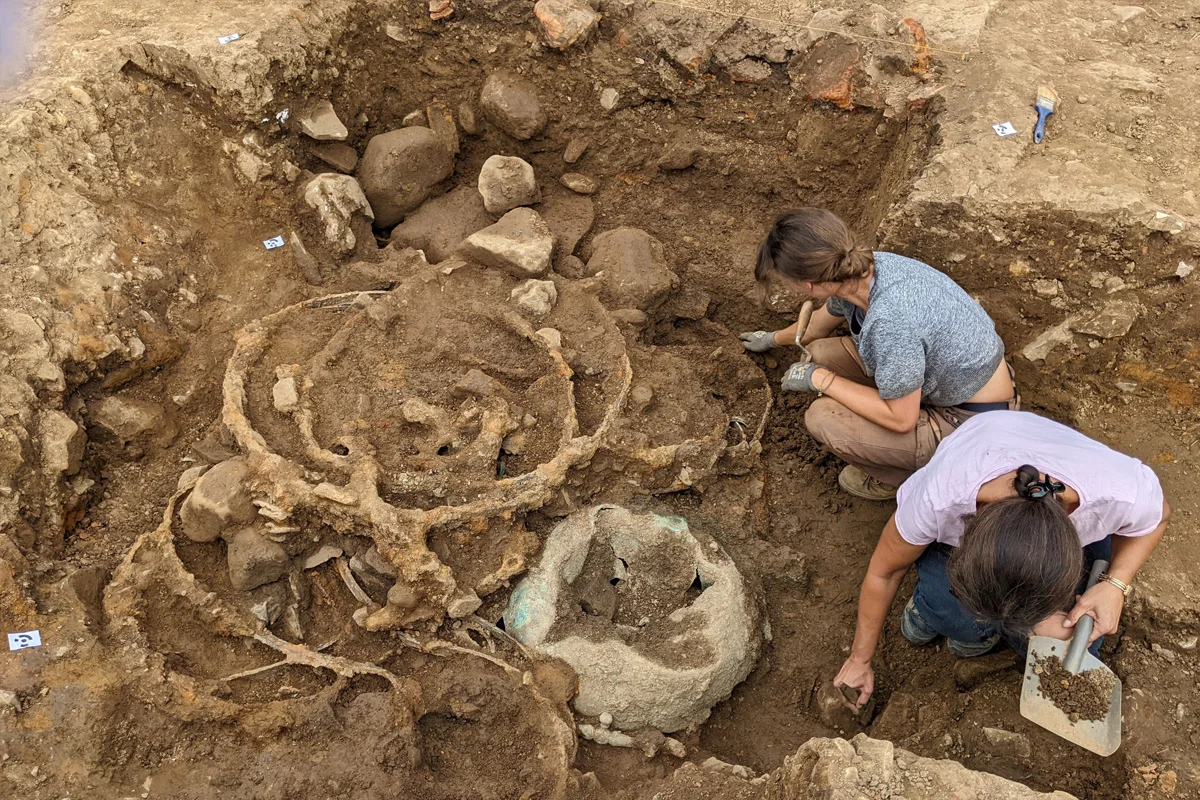Archaeologists have uncovered one of the largest and most significant Iron Age hoards ever found in the UK.
The discovery, known as the Melsonby Hoard, was found near the village of Melsonby in North Yorkshire, England.
Dating from around 2,000-years-ago, the hoard consists of over 800 artefacts, including parts of wagons or chariots, 28 iron tyres, a cauldron, a wine-mixing bowl, elaborate horse harness fittings, bridle bits, and ceremonial spears.
After the initial discovery by detectorist Peter Heads, the site was excavated by a team of archaeologists from Durham University, with support from the British Museum and a £120,000 grant from Historic England.

According to experts, the hoard appears to have been intentional burnt or broken, suggestion a symbolic or ritual connection, possibly as part of a funerary pyre or a commemorative feast to mark a significant event.
“Whoever originally owned the material in this hoard was probably a part of a network of elites across Britain, into Europe, and even the Roman world,” said Professor Tom Moore – A specialist in the British and European Iron Age from the Department of Archaeology at Durham University.

“The destruction of so many high-status objects, evident in this hoard, is also of a scale rarely seen in Iron Age Britain and demonstrates that the elites of northern Britain were just as powerful as their southern counterparts,” added Professor Moore.
According to a press statement on the discovery, the size and complexity of the Melsonby Hoard are exceptional—not just for Britain, but also for Europe. It’s expected to lead to a major reassessment of how Iron Age societies expressed wealth, power, and their use of vehicles.
Header Image Credit : Durham University
Sources : Durham University





